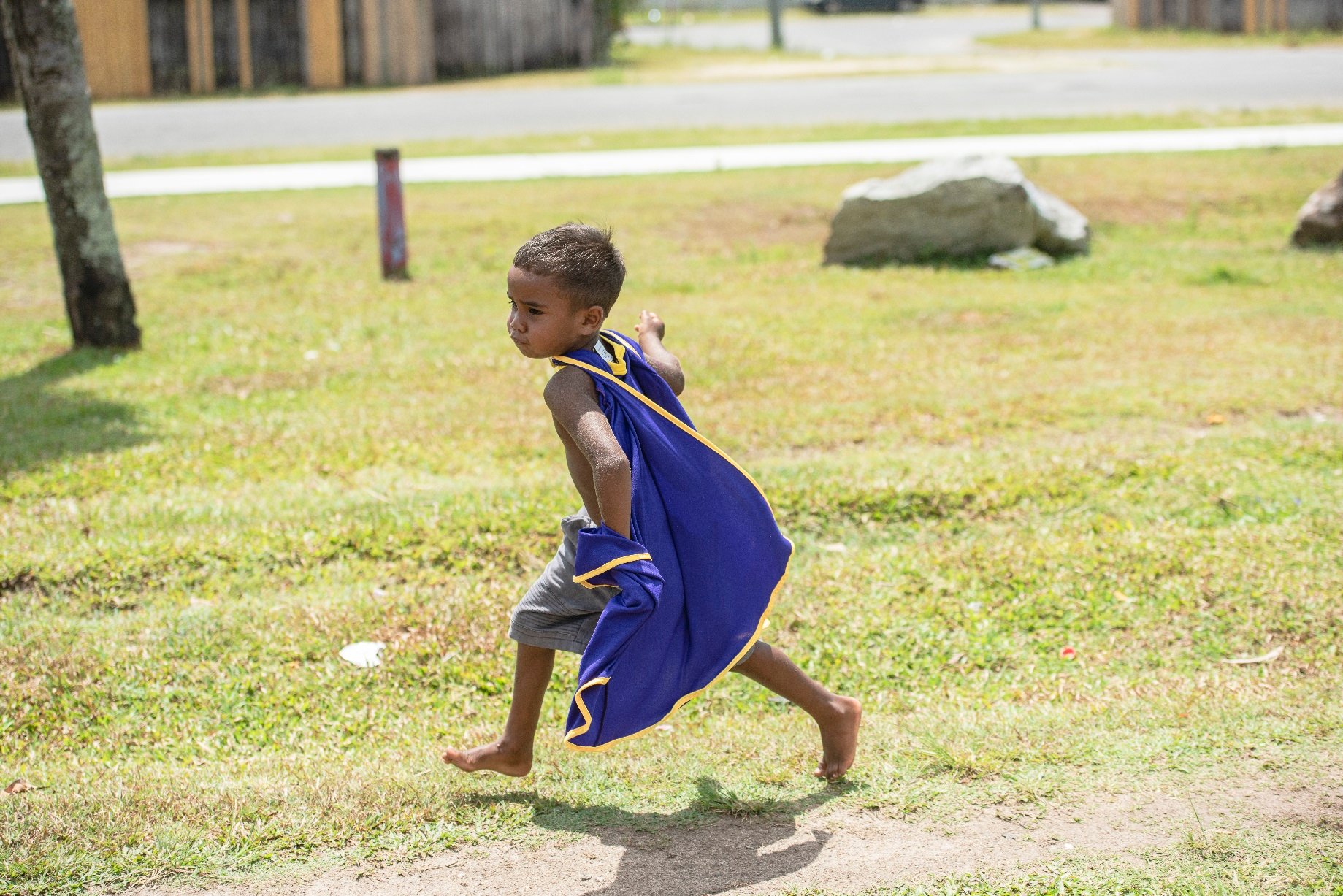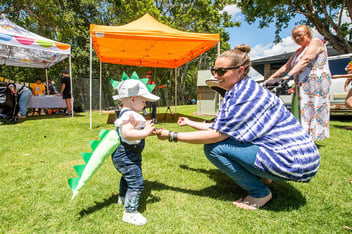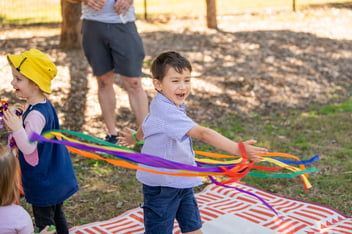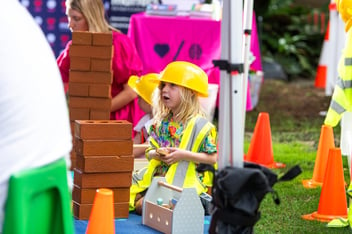
The Power of Music Play: Enhancing Language Development in Early Childhood
Blog > The Power of Music Play: Enhancing Language Development in Early Childhood

The Power of Music Play: Enhancing Language Development in Early Childhood
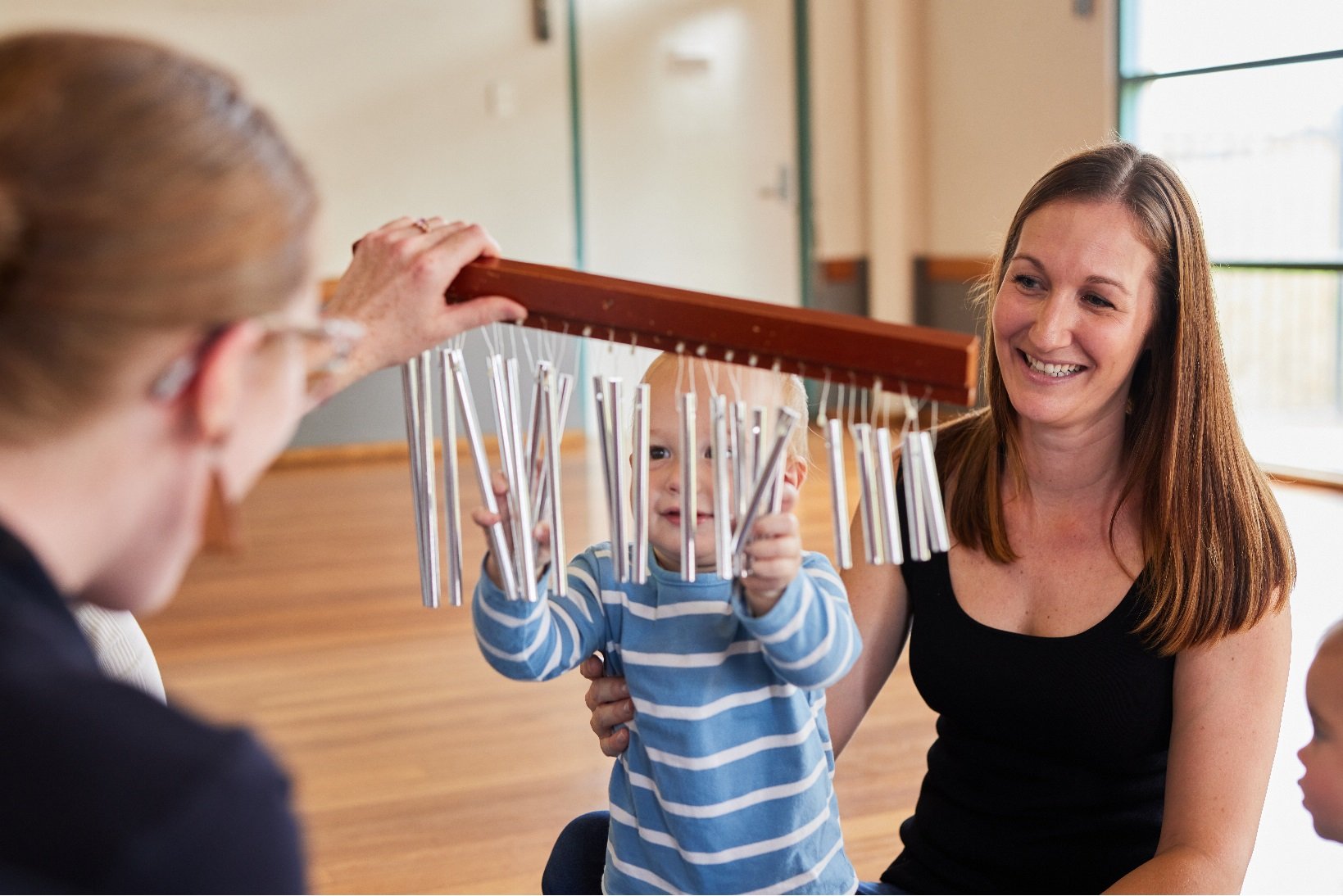
The first 1000 days of a child's life present a critical window for development, shaping their cognitive, language, social, emotional, and motor skills. Music play is a great way to build language skills, helping children to recognise words, patterns, rhythm and pitch. Combining music with dancing, playing instruments and movements can help children with their motor skills, and build those vital left-right brain connections that are essential for later learning in numeracy and literacy. Music play is one of the easiest ways to play with children – it’s mess free, portable, adaptable for all ages, and fun! Read on to learn how music play can boost language skills, including speech and grammar, and some easy tips to incorporate music play into your child's daily routine.
The Impact of Music Play on Language Development
Involving your child in musical activities like singing, listening, and dancing engages their brain and sets them up for developmental success. Megan Chalmers, a PhD student at the University of Queensland, highlights that "early childhood is a sensitive period for musical engagement, and exposure to music during this time could have significant impacts on later development". Even better, research shows that babies who attend interactive music classes as early as 6 months old "showed better early communication skills, like pointing at objects that are out of reach, or waving goodbye".
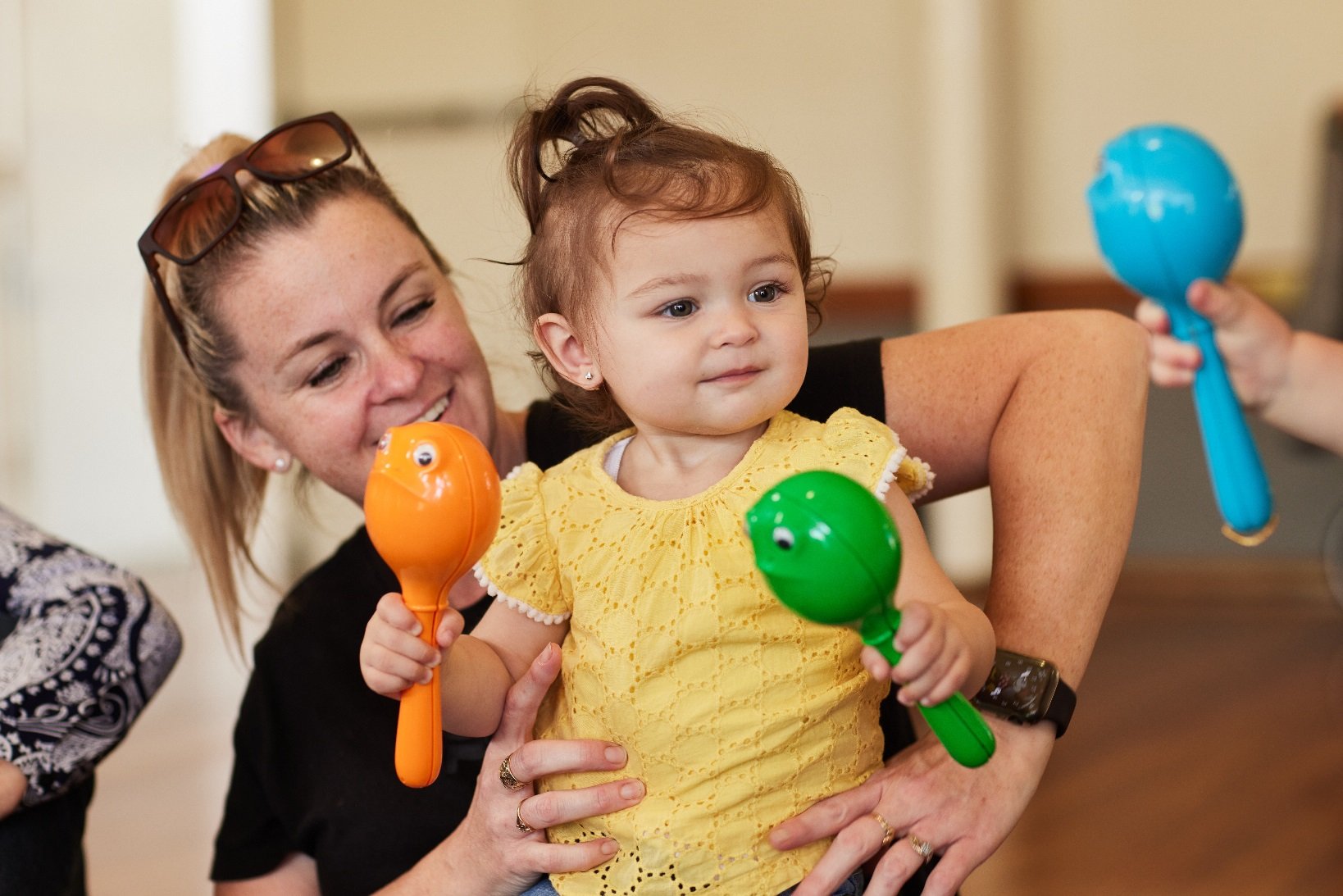
Exploring the Connection Between Music and Speech
Music and language share several structural similarities, such as rhythm, pitch, and tone. These shared features enable the brain to process music and speech using similar neural pathways. As children engage in music play, these neural connections strengthen, ultimately bolstering their language development.
When you sing and move with your baby, your baby is also learning about rhythm, which is important for learning to speak (Raising Children Network). Engaging in music play activities allows children to encounter various speech elements, including intonation, syllable stress, and rhythm, which in turn can improve their language comprehension and production.
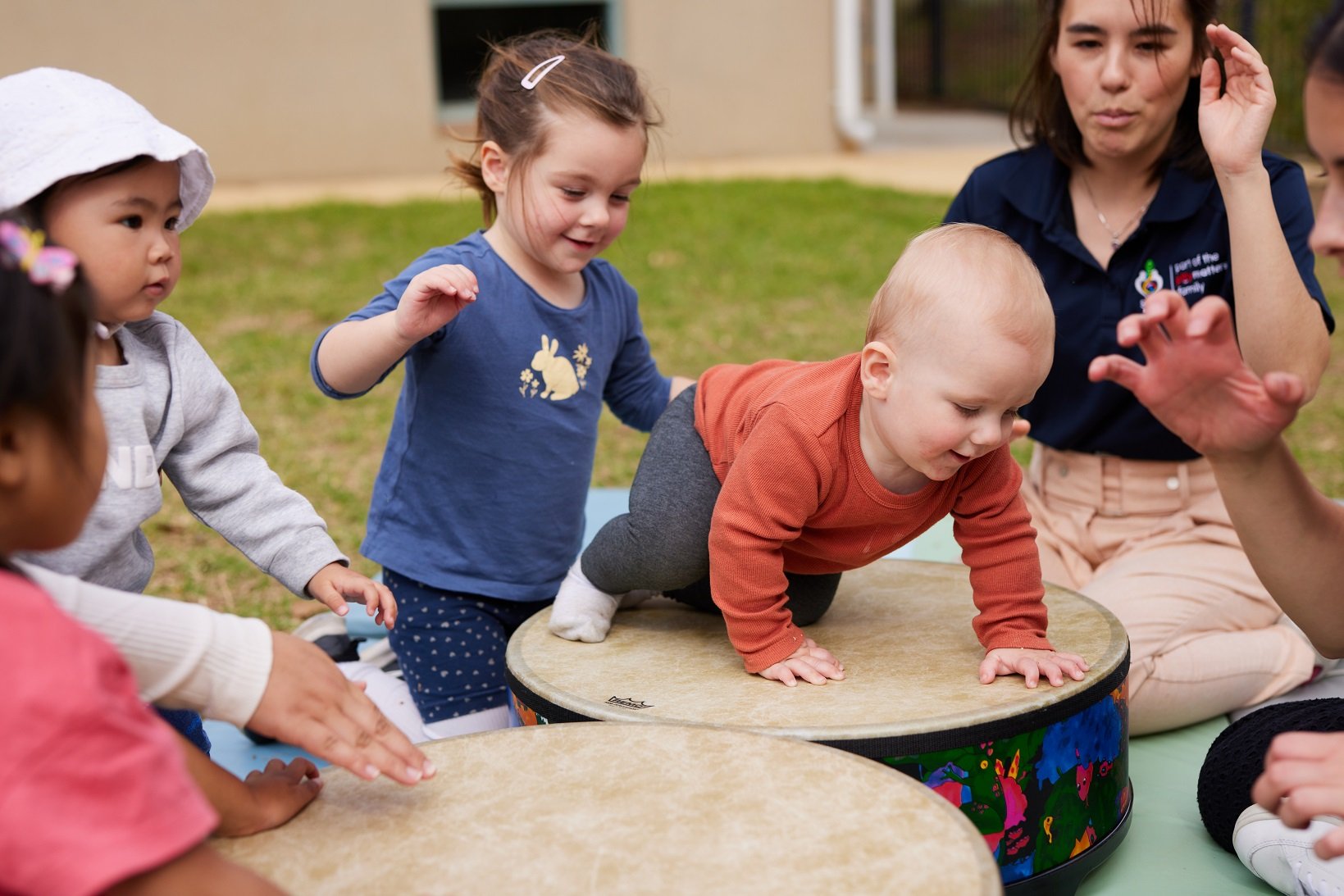
Enhancing Vocabulary and Grammar through Music Play
Music play can also expand a child's vocabulary and refine their grammar skills. Songs and nursery rhymes frequently introduce new words and phrases, allowing children to learn new vocabulary in a fun and engaging manner. Additionally, music play aids grammar development by exposing children to correct sentence structures and syntax via song lyrics.
Practical Tips for Integrating Music Play into Your Child's Daily Routine
- Play music in the background: Expose your child to various musical genres and styles to help them develop a broad auditory palette.
- Sing to your child: Lullabies, nursery rhymes, and original songs can expose your child to diverse sounds, rhythms, and patterns essential for language development.
- Introduce musical toys: Offer age-appropriate musical toys, such as rattles, shakers, and drums, to encourage exploration and interaction with musical elements.
- Attend music classes: Participate in parent-child music classes incorporating singing, dancing, and playing musical instruments to further enhance your child's language development.
- Encourage movement: Dancing and moving to music can help children understand rhythm, a fundamental concept for both music and language comprehension.
- Include cultural songs and dances: It’s never too young for children to learn about different songs, dances and music from other cultures and languages to help children pick up differences in languages, rhythms, instruments and styles.
Music play is an influential tool for fostering language development in young children during their vital first years of development. By incorporating music into your daily routine, through singing, dancing, and engaging with musical toys, it’s easy to create an enriching environment that sets the stage for a lifetime of learning.
Don't miss out on the opportunity to harness the power of music play to enhance your child's language skills. Start today, and witness the remarkable progress in their communication abilities and overall development.
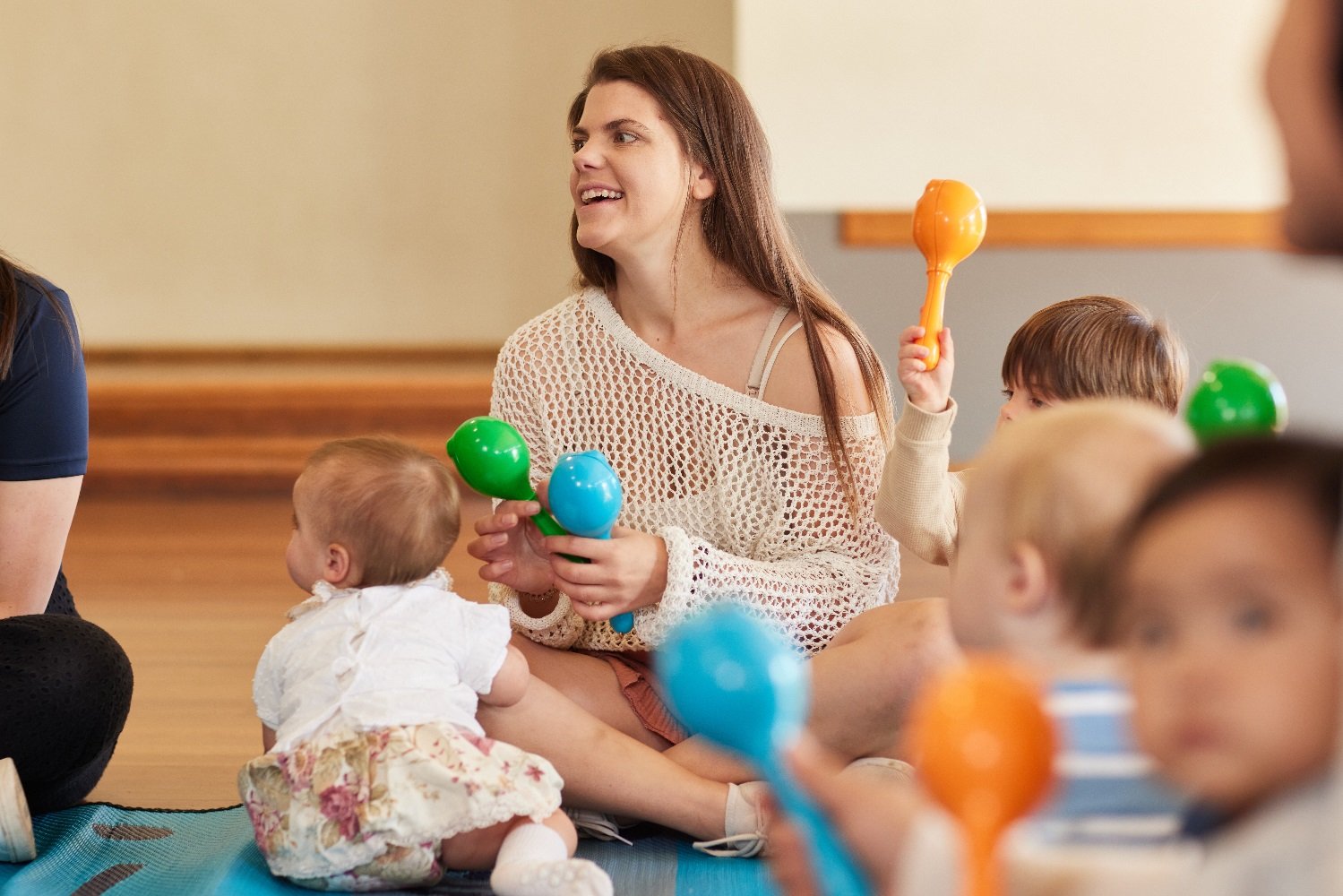
References
The University of Queensland - School of Music – “Research explores impact of early music engagement on child development” https://music.uq.edu.au/article/2019/09/research-explores-impact-early-music-engagement-child-development
The University of Western Australia - Institute for Early Childhood Research “Benefits of music for infants and toddlers” https://www.uwa.edu.au/instituteforearlychildhoodresearch/home/parenting-resources/benefits-of-music-for-infants-and-toddlers
Macquarie University - Department of Cognitive Science - “The role of music in early childhood development” https://www.mq.edu.au/about/about-the-university/faculties-and-departments/faculty-of-human-sciences/departments-and-centres/department-of-cognitive-science/news-and-events/news/news/the-role-of-music-in-early-childhood-development
Raising Children Network (Australian Parenting Website)“Music and Singing: Babies and Toddlers” https://raisingchildren.net.au/babies/play-learning/play-ideas/music-singing
Pregnancy, Birth and Baby (Australian Government Supported Website) “Activities for babies and toddlers” https://www.pregnancybirthbaby.org.au/activities-for-babies-and-toddlers
Williams, Kate E., et al. "Can musical activities promote preschoolers' phonological awareness?." Australasian Journal of Early Childhood 36.4 (2011): 22-29. https://journals.sagepub.com/doi/10.1177/183693911103600404
Find a play experience near you:
Subscribe to our newsletter >
Related content:
Advertisement:
.jpg)
